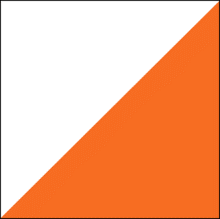
Better Orienteering is focused on orienteering navigation, so this section on fitness and injuries is intentionally short. The recommended books have helpful sections on fitness and physical training.
Here are some simple observations and suggestions on orienteering fitness from personal experience. I can’t claim any specialist expertise, these are just suggestions from my own experience and talking to many other orienteers that may be some help:

- The more serious you get about orienteering the more important it is to do as much of your running as you can with a map. This needn’t only be traditional orienteering, it can even be a case of printing a map and course from another area to take and working out your route choices under oxygen debt as you run. This might sound a bit weird until you try it. You can test your visualisation by re-running a recent course in your mind using the map as the prompt, whilst doing a training run on a different area.
- Orienteering requires more overall flexibility and also upper body strength than most other running and it takes time to build the fitness. Core strength is important. Mixing in other activities such as mountain biking, swimming and gym activites can help avoid injuries and keep you resilient. Problems you have never heard of can creep up on you and a good sports physio can spot them. For example, I would never have worked out on my own, that lower back pain was being triggered by tight hip flexors and lack of all round hip mobility.

- All round stretching is vital. Running over rough terrain needs flexibility. You will need expert help to check you over to work out where you need to stretch and improve mobility and where you also need to strengthen.
- Just as you take your car in for regular servicing and fixing, if you do high intensity and endurance sport, your body will need fixing and tuning up with expert help.
- Good nutrition requires effort, but yields rewards.
- Injuries will happen. Be patient, they can be fixed. You will be amazed what can be achieved. Straight away after an injury it is hard to believe you will ever get fixed. What you need is a good sports physio who can take you through enough steps to get strength, flexibility and function back. Over 42 years of orienteering (up to 2019) the worst injuries I have had have come from other sports and activities such as mountain biking, or falling down some wet steps, which is amazing when I think of all the places I have been orienteering.
- Don’t rush to surgery, but don’t overly avoid it if it is necessary. One knee operation and one other operation have been essential to keep me running (neither injury was caused by orienteering or running). Life is happier and healthier for being able to stay active.

- Lots of road running has caught up with everyone I know who has done it. It is important to do a variety of exercise and running off-road is much less punishing in the long term, as long as you work on stretching and strengthening as well.
- You won’t be able to solve all your own problems, so it is worth the effort finding a really good sports physiotherapist. Most people don’t do the rehab exercises they are given. If you do them conscientiously, you will probably get good results.
- The endurance needed for Elite Long races comes not only with fitness but also more physical maturity than many sports. Many Elites are only just enterring their best fitness in their late 20s. World Champions are often in their mid 30s. Don’t be discouraged if you can’t reach the highest levels of competition younger than this.
In the UK, I have had very disappointing physio help from the National Health Service, but I have been very fortunate to have access to the physios at The Lilleshall Clinic in Shropshire (They treat many orienteers. For those in the Midlands, here is the telephone number: 01952 605828 – I am not getting any benefit from recommending them, I’m just happy to say how good my experience has been). Jumal who runs the clinic looks after the UK Olympic Gymnastic team and the UK Olympic Archery Team and is the nearest thing to a physio genius I have met! No amount of self-help books can come close to the experience and expertise of a really good physio.
To find a good physio it helps to look for someone who works mostly with athletes, is willing to get their hands on injuries rather than just talk or give you leaflets and information and who is a keen athlete themself.
If you have any ankle injuries from orienteering (which is fairly common) the Aircross A60 ankle support is the best I have tried of many varieties.
VJ orienteering boots offer a lot of support with a very high ankle and articulated ankle joint. (Again I am gaining nothing from these sugestions). I wish I had been running in VJ boots from my teenage years rather than only trying them in middle age!
That’s all!